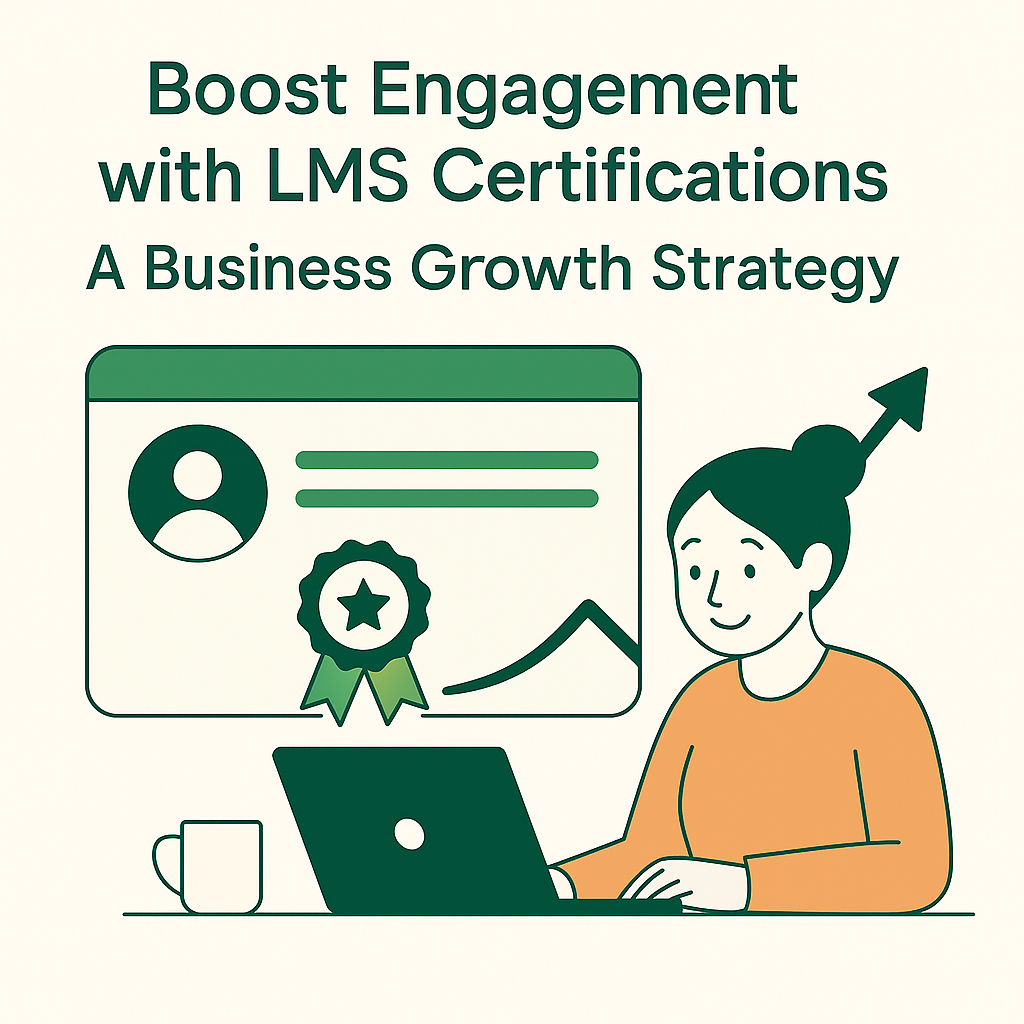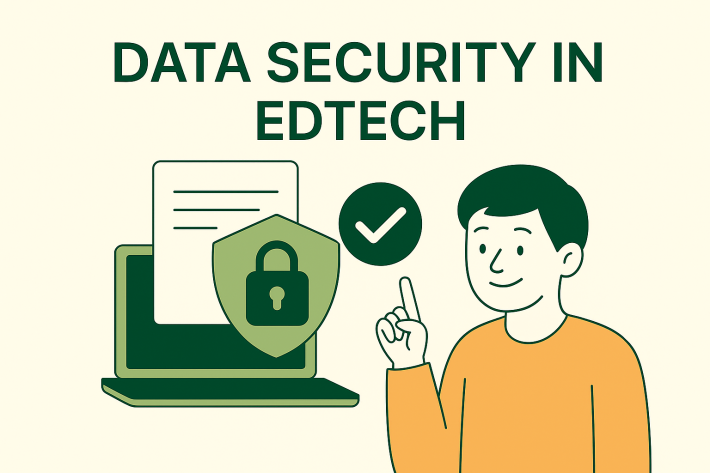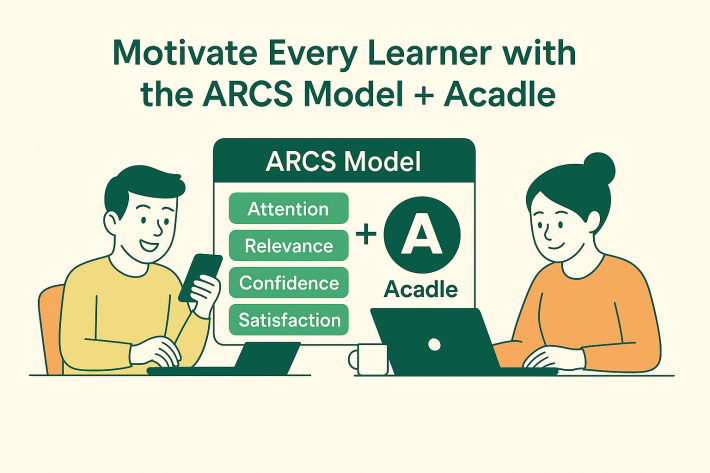Boost Engagement with LMS Certifications: A Business Growth Strategy

In the fast-evolving world of corporate learning, keeping employees engaged is a constant challenge. One of the most effective ways to drive engagement and motivate learners is by offering certifications through a Learning Management System (LMS). Certifications not only provide validation of knowledge but also create a tangible sense of accomplishment that can significantly boost participation and retention in training programs.
In this post, we’ll explore how incorporating LMS certifications into your training strategy can not only increase engagement but also drive business growth by developing a more skilled and motivated workforce.
Why LMS Certifications Matter for Engagement
Learner engagement is crucial to the success of any training program, but without a clear goal or reward, employees may struggle to stay motivated. This is where LMS certifications come into play. Certifications provide employees with a clear incentive to complete their training, as they offer a sense of achievement that can be recognized by both the company and the broader industry.
Here’s why certifications are so effective in boosting engagement:
1. Recognition of Achievement
Certifications act as proof of knowledge and skills acquired through training. Employees feel a sense of accomplishment when they receive a certificate, which in turn encourages them to continue learning. This external validation is a powerful motivator that drives individuals to complete their courses and achieve the desired certification.
2. Career Advancement
Employees are always looking for ways to grow and advance their careers. Certifications offer a tangible way for them to showcase their skills and expertise, making them more competitive for promotions or new job opportunities. As employees see the direct impact certifications have on their career paths, they are more likely to engage with training programs.
3. Gamification of Learning
Offering certifications can gamify the learning process by turning training into a series of goals or challenges to be achieved. Employees often see certifications as milestones, which makes training more engaging and rewarding. This gamified approach can increase participation rates and make learning more enjoyable.
4. Public Recognition
Certifications can be shared on professional networks like LinkedIn or displayed within internal company platforms. This public recognition not only boosts an individual’s confidence but also encourages others within the organization to pursue certifications, further increasing overall engagement with the LMS.
How LMS Certifications Drive Business Growth
While certifications are effective in boosting engagement, their impact extends beyond individual motivation—they also contribute directly to business growth in several ways:
1. Enhanced Employee Skill Sets
As employees earn certifications, they acquire new skills and knowledge that can be immediately applied to their roles. Whether it’s improving efficiency, mastering new tools, or developing leadership skills, a more capable workforce translates to better business outcomes. Well-trained employees are more likely to innovate, solve complex problems, and contribute to company growth.

2. Improved Employee Retention
Offering certifications shows that your company is invested in the development and growth of its employees. This investment in employee success fosters loyalty and satisfaction, which are key factors in retaining top talent. When employees feel supported and see opportunities for advancement, they are more likely to stay with the company, reducing turnover and recruitment costs.
3. Building a Culture of Learning
Certifications foster a culture of continuous learning within an organization. Employees who see the value of certifications are more likely to participate in additional training programs, contributing to an environment where learning and development are prioritized. This culture not only strengthens internal talent but also helps attract new employees who are eager to grow and develop their skills.
4. Enhanced Employer Branding
By offering industry-recognized certifications, companies can build their brand as a leader in employee development. Employees who earn certifications through your LMS can showcase their credentials externally, positioning your company as a place where learning and professional growth are encouraged. This not only improves employee satisfaction but also helps attract top-tier talent to your organization.
Best Practices for Implementing LMS Certifications
To maximize the impact of certifications on employee engagement and business growth, it’s essential to implement them effectively. Here are some best practices to follow:
1. Offer Role-Specific Certifications
Tailor certifications to different roles and departments within your organization. Role-specific certifications ensure that employees receive relevant and targeted training, which boosts both engagement and skill development. By aligning certifications with specific career paths, you can also create clear advancement opportunities for employees.
2. Set Clear Goals and Milestones
Establish clear learning objectives and certification criteria for each training program. This gives employees a tangible goal to work towards, keeping them motivated throughout their learning journey. Break down larger certifications into smaller, manageable milestones to keep employees engaged over time.
3. Integrate Certification Sharing
Encourage employees to share their certifications on social media platforms like LinkedIn. Publicly recognizing certifications not only boosts morale but also enhances your company’s reputation as a leader in learning and development. Consider integrating social sharing buttons directly into your LMS to make the process seamless.
4. Use Data to Refine Certification Programs
Leverage LMS analytics to track certification completion rates and assess the impact on employee performance. Use this data to refine your certification offerings, ensuring they remain relevant and valuable to both employees and the business. Continuously improving your certification programs will keep employees engaged and ensure your training aligns with business goals.
Conclusion
Incorporating LMS certifications into your training strategy is a powerful way to boost employee engagement while also driving business growth. Certifications offer employees a clear path to achievement, motivate them to complete training, and build a culture of continuous learning.
By investing in a robust certification program through Acadle LMS, your organization can ensure that employees are not only engaged but also continually developing the skills needed to contribute to long-term success.
Start using certifications to drive engagement and growth in your business today.


